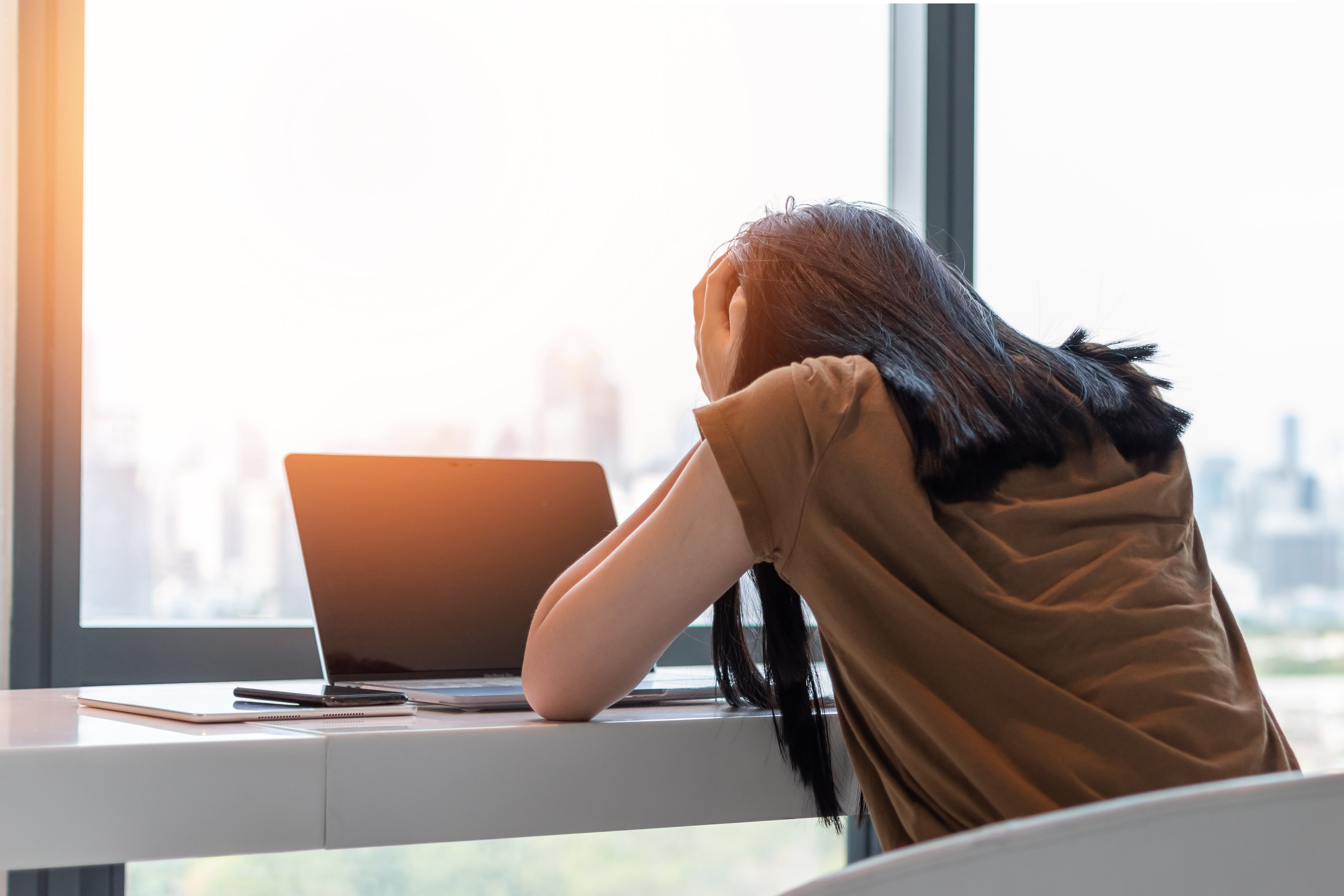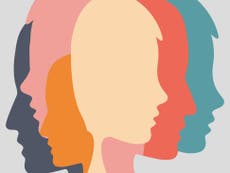Hundreds of thousands more women tested for ADHD last year
Exclusive: ‘Men with ADHD often have women in their lives who look after them but often you don’t get that if you are a woman,’ says Harriet Clare

Your support helps us to tell the story
From reproductive rights to climate change to Big Tech, The Independent is on the ground when the story is developing. Whether it's investigating the financials of Elon Musk's pro-Trump PAC or producing our latest documentary, 'The A Word', which shines a light on the American women fighting for reproductive rights, we know how important it is to parse out the facts from the messaging.
At such a critical moment in US history, we need reporters on the ground. Your donation allows us to keep sending journalists to speak to both sides of the story.
The Independent is trusted by Americans across the entire political spectrum. And unlike many other quality news outlets, we choose not to lock Americans out of our reporting and analysis with paywalls. We believe quality journalism should be available to everyone, paid for by those who can afford it.
Your support makes all the difference.Hundreds of thousands more women tested themselves for attention deficit hyperactivity disorder (ADHD) last year than previously with the proportion of women seeking tests now far outnumbering men, new figures show.
Exclusive data, seen by The Independent, shows around 7,700 women took an online test verified by health professionals to see if they have ADHD in 2019, but this figure soared to around 254,400 women last year.
Health professionals note there has also been a rise in women being diagnosed with the neurodevelopmental disorder – warning ADHD is wrongly seen as a male condition due to symptoms often presenting very differently in women.
Data from Clinical Partners, one of the UK’s leading mental health care providers which works closely with the NHS, shows women made up 60 per cent of those using their ADHD tests.
This is substantially higher than the 51 per cent of women testing themselves for ADHD in 2019 and the 53 per cent of women taking a test in 2020.
ADHD typically involves hyperactivity, impulsivity and inattention, but women are less likely to display these first two traits, due to being more likely to have what is known as “inattentive ADHD”. Experts say ADHD is harder to spot in women due to them being more likely to internalise or camouflage symptoms.
My room is a mess. I forget appointments. I am late all the time. I am late paying rent. Bureaucratic tasks are difficult
Around one in 20 adults is estimated to have ADHD, while around four times more boys are diagnosed with the condition than girls.
Harriet Clare, who was diagnosed with ADHD five years ago, told The Independent she was forced to borrow money off friends to pay for private healthcare after giving up on the NHS due to receiving inadequate support.
The 32-year-old said: “This is quite a typical story. Also, a lot of people go for private diagnosis and are then not taken seriously by NHS who say: ‘You’ve gone and paid, it’s not real’.
“I went to the GP three times in total. The first time a doctor said something along the lines of, ‘People say lots of things now, I’m sure when I was younger, I would’ve been diagnosed with something but I’m fine’. The second time I was referred to the wrong place.”
Ms Clare, who works in health and social care in London, said women who describe ADHD symptoms to their GP are routinely handed antidepressants due to the disorder being misdiagnosed as a mental health condition.
She said her own symptoms of ADHD make mundane day-to-day tasks a massive struggle – adding that she dropped out of her second degree at university after spending almost four years trying to complete her final project before giving up.
“My room is a mess,” Ms Clare added. “I forget appointments. I am late all the time. I am late paying rent. Bureaucratic tasks are difficult. I sometimes find my phone in the fridge. I found my keys in my shoe. I will put something somewhere and it is just gone. I can’t have a job and eat and make sure I look after myself.”
She said her ADHD affects everything she does but it has improved in later life, adding that she used to disrupt people in conversations but no longer does so.
Undiagnosed, ADHD can lead to serious mental problems such as anxiety, depression, self-harm, eating disorders, difficult relationships, and traumatic experience
Ms Clare added: “In adulthood, men with ADHD tend to have more social communication problems whereas women have more emotional control problems.
“ADHD affects my relationships. Rejection is hard. Men with ADHD often have women in their lives who look after them but often you don’t get that if you are a woman.
“There is often still an expectation for women to do more housework, but it is impossible doing it for two people when you can’t do it for one. I can’t find my shoes unless they are on my feet.”
She said being in a romantic relationship involves being expected to do things that people with ADHD often struggle with, such as remembering birthdays or other key dates.
“I might lose a present someone gave me or throw it on the floor, but it is not that I don’t care,” she said.
Ms Clare, who has done extensive research on ADHD, said her brother was diagnosed with ADHD as a child, displaying typical symptoms of running around and “bouncing off the walls”.
Meanwhile, her symptoms presented differently and involved losing belongings, keeping mouldy sandwiches in her bag and teachers unfairly assuming she wasn’t trying hard enough.
“This is why people with ADHD sometimes end up depressed; they say you are not trying hard, but you are trying your hardest. People become miserable,” Ms Clare added.
Dr Pablo Jeczmien, the consultant psychiatrist at Clinical Partners, told The Independent: “ADHD is underrecognised in girls and women because the symptoms of ADHD we associate with hyperactivity and impulsivity present differently or are absent in females.
“Many young boys get diagnosed far earlier than girls with ADHD. Given girls’ and boys’ symptoms present in different ways, many women whose symptoms are missed as children find their struggle to receive a diagnosis at a young age can affect their whole lives, sometimes leading to developing anxiety or depression as a result.”
He noted boys with ADHD tend to be more hyperactive and disruptive at schools whereas girls are more likely to stay quiet and daydream. In teenage years, hormonal fluctuations are routinely “blamed” for ADHD symptoms.
“Undiagnosed, ADHD can lead to serious mental problems such as anxiety, depression, self-harm, eating disorders, difficult relationships, and traumatic experiences,” Dr Jeczmien said.
“When finally receiving an ADHD diagnosis and the right support, many women report they feel much happier, more productive, have happier relationships, and finally feel more ‘in control’ of their own brain.”
Dr Louise Theodosiou, from the Child and Adolescent Faculty at the Royal College of Psychiatrists, noted undiagnosed ADHD can also lead to drug and alcohol usage.
“Professionals working with children and young people should be aware of the symptoms of ADHD in different genders and adults living with symptoms should have access to services so an early diagnosis can be made,” she said.
Dr Tony Lloyd, chief executive of the ADHD Foundation, the UK’s leading organisation on the condition, told The Independent there are “most definitely” more women being diagnosed with ADHD than before. “We are realising ADHD is much more prevalent in girls than thought,” the psychologist added.
Dr Lloyd, who has ADHD himself, hit out at “stigmatising” and “inaccurate” stereotypes of ADHD being characterised as “hyperactive fidgety boys who are naughty”, as he explained girls with ADHD are “more likely to be labelled daydreamers, chatterboxes, and low ability”.







Join our commenting forum
Join thought-provoking conversations, follow other Independent readers and see their replies
Comments